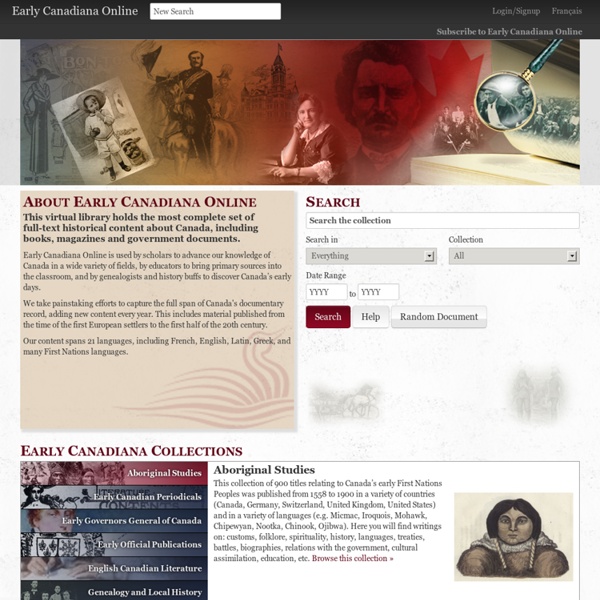



RÉCIT National - Univers social Le chemin de fer canadien : d'hier à aujourd'hui | VIA Rail Assister à la construction du chemin de fer transcontinental, c'est être le témoin de la naissance du Canada : en effet, au 19e siècle toute l'Amérique du Nord vit une métamorphose. Les immigrants, surtout européens, viennent s'y établir. Des villes naissent un peu partout. Grâce au train, les distances à parcourir sur la terre ferme en une journée ne se comptent plus en kilomètres mais bien en dizaines ou en centaines de kilomètres. Des années 1600 au début des années 1800 En Nouvelle-France, les habitants se déplacent en bateau, en carriole ou en calèche. Les grandes dates du chemin de fer canadien jusqu'en 1978 L'année 1836 marque un point tournant dans l'histoire du Canada avec l'inauguration de son premier chemin de fer public, près de Montréal, entre Saint-Jean-sur-Richelieu et La Prairie. Voici quelques-unes des grandes dates dans la chronologie des événements qui ont débouché, en 1977, sur la création de VIA Rail Canada.
Le Canada en devenir Bienvenue à du projet Le Canada en devenir!Ce site porte sur l'histoire du Canada grâce aux propos des hommes et des femmes qui ont façonné la nation. Créé autour de la collection des documents gouvernementaux de la collection de Notre mémoire en ligne, il intègre des textes narratifs et des liens vers des textes constituant des sources primaires. Ce site a été conçu pour les étudiants et les enseignants en études canadiennes, en histoire et en droit, mais il sera également utile aux chercheurs et à toute autre personne intéressée au passé du Canada. Il comprend : Tout le contenu historique de ce site Web a été examiné et approuvé par le consultant en chef en matière d'histoire, M. Notre mémoire en ligne est la banque de données en ligne d'anciens textes canadiens numérisés détenue et entretenue par Canadiana.org.
Histoire du Canada Aventure/découverte 1. Musée virtuel Canada : La ruée vers l'or du Cariboo - 3e cycle 2. Musée de la civilisation : Ciel ! Mon bateau...Nous sommes à la fin du 17e siècle et d'immenses territoires attendent d'être explorés. Mettez vos connaissances et votre sens de l'observation à l'épreuve tout en revivant l'épopée d'un personnage d'histoire 3. 4. 6. 8. 2011 9. 18. Français 1. 2014 3. 2014 4. 2014 5. Jeux de mémoire 1. 2014 2. 2014 3. 2014 4. Pour s'amuser 1. 2. 3. 4. 5. 6. Quiz 1. 9. 2014 10. Retour au menu Histoire du Canada
These collections contain over 80,000 rare books, magazines and government publications from the 1600s to the 1940s. by marylenegoulet Sep 28